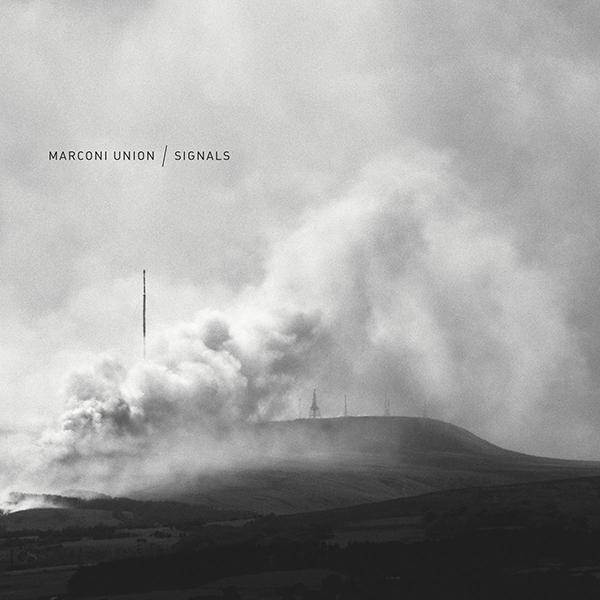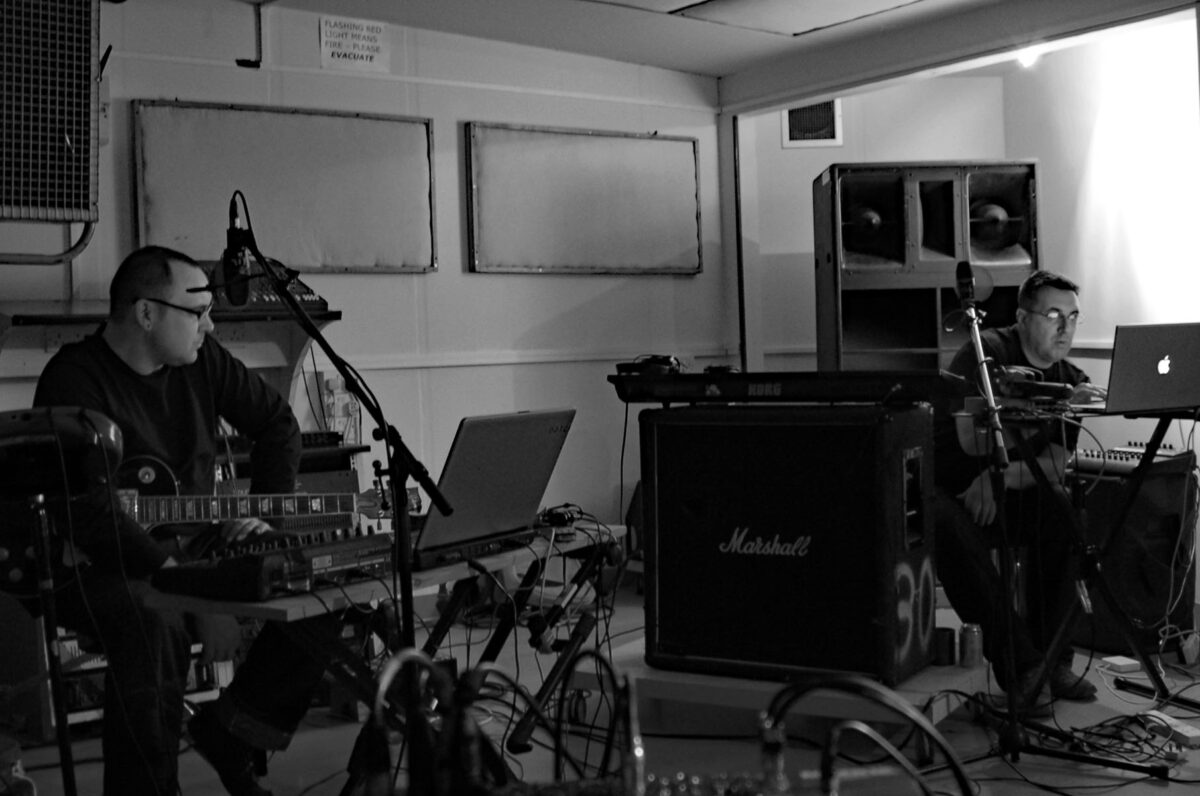Marconi Union's "Signals": Echoes November CD of the Month
By John Diliberto
 It’s hard to find a distinctive electronic voice these days, but Marconi Union have been honing theirs since they first emerged in 2003. After the deep ambiences and abstract grooves of their last few recordings like Dead Air, Tokyo+ and Ghost Stations, Marconi Union hits the groove again on their latest release, Signals.
It’s hard to find a distinctive electronic voice these days, but Marconi Union have been honing theirs since they first emerged in 2003. After the deep ambiences and abstract grooves of their last few recordings like Dead Air, Tokyo+ and Ghost Stations, Marconi Union hits the groove again on their latest release, Signals.
 Marconi Union are a true 21st century band. They got their start in 2002 when electronic musician and guitarist Jamie Crossley and electronic musician Richard Talbot met in a record store in Manchester, England. They got together and created music that seemed to reflect that cities industrial decay. The duo created a series of albums, each very distinct but sharing a sensibility for atmospheric and mysterious sounds and very subtle melodies. They collaborated with bassist Jah Wobble on the album Anomic and have since been joined by Duncan Meadows, who plays keyboards.
Marconi Union are a true 21st century band. They got their start in 2002 when electronic musician and guitarist Jamie Crossley and electronic musician Richard Talbot met in a record store in Manchester, England. They got together and created music that seemed to reflect that cities industrial decay. The duo created a series of albums, each very distinct but sharing a sensibility for atmospheric and mysterious sounds and very subtle melodies. They collaborated with bassist Jah Wobble on the album Anomic and have since been joined by Duncan Meadows, who plays keyboards.
With Signals, they look to a more rhythm-driven sound inspired by drummers like Jaki Liebezeit of the German group, Can, Nigerian drummer Tony Allen of Fela Kuti’s Africa ’70 and Clive Deamer who has played with Hawkwind, Radiohead, Portishead and many others. It’s this spirit, if not the actual drummers, who inspired the mostly trap-set style grooves of Signals.
Duncan Meadows gets a lot of space on this album, navigating the jazzier grooves of “The Halo” with an electric piano solo. Other tracks take on a heavier beat like “Blowback”, one of the darker tracks Marconi Union has recorded. Its prowling 4/4 rhythm and snarling synthesizer bass makes you feel like you’re being stalked on a Blade Runner back-alley. Somehow they manage to drop in an ethereal female choir into this menacing track.
Marconi Union play more with dynamics on this album and approach actual songs. You hear that on “Strata,” which continues the energy of “The Halo”, but in a more exhilarating fashion. The groove charges through a video game landscape. Crossley decorates the track with guitar arpeggios and some heavy tremolo chords while sound effects and crunching rhythm accents zoom by this road into the darkest night. The heavy pads drop out in a bridge as Meadows drops in some electric piano reveries before returning to the chase.

Marconi Union 2006 on Echoes for first concert ever.
Marconi Union haven’t left the atmospherics behind. Except for the opening track, “Cycle Repeat” which launches right into Jaki Liebezeit-inspired groove, they start out most tracks with mood-setting electronics like the swirling glissandos of “A Citizen’s Dream.” But then atmospheres become part of the song as the drums course in with a slow, syncopated groove, synthesizer streams descending from the skies like a cascade of midnight flares. The layers of sounds and synths on this track is orchestral in its breadth.
Marconi Union have their influences, but they aren’t subsumed by them. Yes, there are elements of German 70’s Rock, New Wave, electronic music, jazz, minimalism, and more. But it’s all immersed in an exploratory aesthetic .It’s a sound like “Breaking Point,” with its rubbery staccato bass synth groove, sub-bass drone and minimalist electric piano motif, that in the end breaks into a grand crescendo. It’s full of layered ambiences with intentionally rough edges.
The final track “Looking Through the Ilex,” starts as one of the prettier tracks on the album with Crossley’s jangly guitar arpeggios and a bass-line like Pink Floyd’s “One of the Days” before it got crazy. But after a solo sequence of slow organ chords, the drums kick in for an anthemic album closer. Still kinda pretty though.
Marconi Union uses the groove to take you into a textured, layered world that rewards deep and loud listening. They drop sonic artifacts all over and after a few albums, they’ve brought back those ephemeral melodies that made their early work so evocative. Signals re-establishes Marconi Union as leading lights of forward moving electronic music.
Read review of Marconi Union’s Distant Colours
Hear Marconi Union 2016 interview in Echoes Podcast

Signals is a superb piece of work, sits well alongside Marconi’s best.
Nothing to add here except to say that it’s a Superb album.